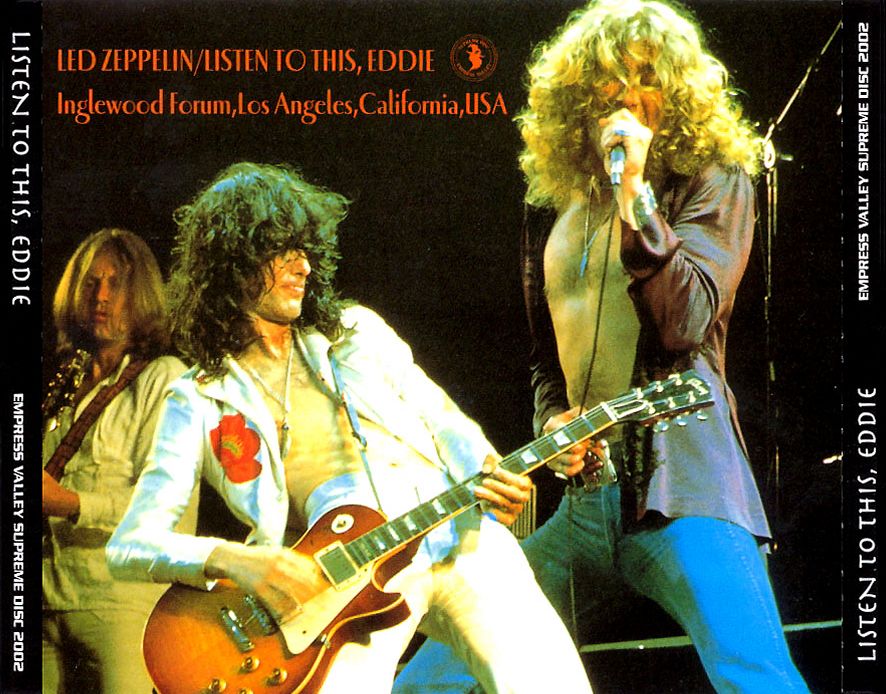 The story of how Boy George went from being unequivocally the smash hit of 1983 to the tabloid stooge of 1986 to the sad cabaret artist of 1988 is, if nothing else, a cautionary tale in media manipulation.
The story of how Boy George went from being unequivocally the smash hit of 1983 to the tabloid stooge of 1986 to the sad cabaret artist of 1988 is, if nothing else, a cautionary tale in media manipulation.George Alan O'Dowd trod the usual path of the true rock 'n' roll rebel/victim. Expelled from school for insubordination, he drifted into an underground London society of drag artist. He was by no means the most outrageous of them, but he was easily the most talented. His voice was assured and soulful, and he made the transition from merely going to clubs to actually appearing at them when he was snapped up by Malcolm McLaren as co-singer for the band Bow Wow Wow. This was not just a safety measure against the band's teenage singer Annabella quitting, but also a testament to George's striking looks and voice. While he was in Bow Wow Wow he called himself 'Lieutenant Lush'.
Worries over McLaren's influence led to his departure from the band. Besides he had ideas of his own, and soon, with the addition of Jon Moss, Roy Hay and Mikey Craig, an interesting multi-coloured funk-toting four-piece. Culture Club was conceived. The end result was probably nowhere near as cynical as it looked. But the happy mix of colours and images, to say nothing about the rumours concerning exactly who if any in the band was gay, got the world around. After a couple of minor hits they had a huge number one success in 1982 with the song ' Do you really want to hurt me'
The music press had been courting him for years, since his arrival on the
 club scene, but when the daily tabloids were faced for the first time with the unashamedly and rogynous George, the results were predictable. Is it a Her? A Him Or Is It Neither? ..... "Mister (Or Is It Miss?) Weirdo'. . . He even won the nauseating Nina Myskow Wally of the Week Award.
club scene, but when the daily tabloids were faced for the first time with the unashamedly and rogynous George, the results were predictable. Is it a Her? A Him Or Is It Neither? ..... "Mister (Or Is It Miss?) Weirdo'. . . He even won the nauseating Nina Myskow Wally of the Week Award.When they found out that he was nor a freak and indeed had not only a mind of his own but the vocabulary to express it, their claws retracted a good idea. The tabloids even began to interview George, drawing supposedly outrageous quotes from him about how he preferred a cup of tea to sex. He was hardly ever out of the pop gossip columns. The greatest tribute a singer can receive - the Daily Mirror Personality of the Year Award - adorned his masterpiece for two years in a row.
And all the while hordes of lookalikes- mostly girls, for some reason - followed him in every conceivable fashion style. The records he made with culture Club - 'Time (Clock of the Heart)','Church of the Poison Mind','Karma Chameleon'- outdid each other on the dance floors and in the charts, and his got-it-flaunt it style even provoked comments from Princess Margaret ('Who's that over made-up tart?")
The problem only started when the hits stopped, when George ceased to be the charming vamp in flagrante delicto and began to look vulnerable. By 1986 Culture Club were finished. A string of mediocre records and a blatant lack of number one singles convinced the fickle t
 eenage armies that more exciting thrills lay elsewhere, and George went the way of the Bay City Rollers and Adam Ant before him. Forced to rely exclusively on musical content, he was found wanting. The tabloids hissed a little and sat back waiting for the first mistake.
eenage armies that more exciting thrills lay elsewhere, and George went the way of the Bay City Rollers and Adam Ant before him. Forced to rely exclusively on musical content, he was found wanting. The tabloids hissed a little and sat back waiting for the first mistake.George had made anti-drug statements in the past and had persuaded most people that he was much too happy in the high life to mess with narcotics. So it was a genuine shock when the story of his heroin addiction broke in the pages of the Daily Mirror in June 1986. The George-as-junkie headlines were given more lurid life by the fact that the information came from his brother. George had also given an interview to John Blake, writer of the Mirror's pop column, in which he let slip a few indiscretions. Now there was not only a George-on-heroin scandal, there was an O'Dowd-family-at-war scoop as well.



